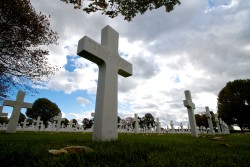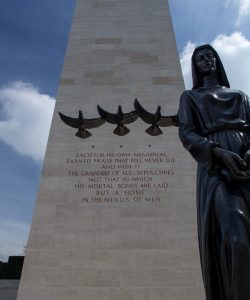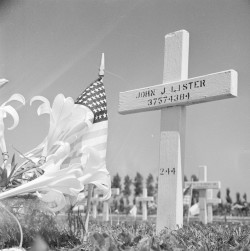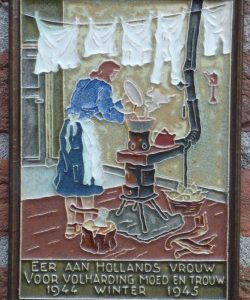
Posting this blog on the fifth of each May has become a tradition for me.
Liberation Day (also known as Freedom Day) for the Netherlands (Holland) was 5 May 1945. Canadian forces along with other Allied forces were able to obtain the surrender of German forces in the small Dutch town of Wageningen. This led to the complete German surrender and liberation of the country. The Netherlands was one of the last European countries to be liberated. Two days later in Reims, Generaloberst Alfred Jodl signed the document for the unconditional surrender of the German armies.
Thank You
We’d like to thank everyone who contacts us regarding our blogs. We get correspondence saying how much they like the blogs as well as the occasional e-mails pointing out errors. Both of these are very much appreciated. We’ve made friends with other authors from around the world as well as others who relay related stories and comments. We stay in contact with people who run non-profit organizations dedicated to preserving the memories of those who fought the Nazis. So, please keep those e-mails coming! It’s critical to NEVER FORGET.
Netherlands American Cemetery (Margraten)
There is a cemetery near Maastricht. It is the final resting spot for 8,301 American soldiers and a memorial for 1,722 men missing in action. They were the casualties of Operation Market Garden (17–25 September 1944) and other battles aimed at liberating Holland. Operation Market Garden was a failed Allied attempt to liberate Holland while on their march to Germany and Berlin. Other military cemeteries are located nearby for the British and Canadian men who did not survive the battle. Learn more about Operation Market Garden here.

Individual Dutch families have adopted every man who perished in the battle. Each man’s grave is kept up and decorated by their adopted family. Even a portrait of their adopted soldier sits in their respective homes.

Did You Know?
Did you know that a new book about Audrey Hepburn recently came out? Robert Matzen wrote Dutch Girl: Audrey Hepburn and World War II. It’s the story of Ms. Hepburn growing up during the German Occupation of Holland and how she assisted the Dutch Resistance. It’s also the story of the relationship with her aristocratic mother who was a Nazi sympathizer until the family’s beloved Uncle Otto was executed as a hostage. Ms. Hepburn’s son, Luca Dotti, says “My mother always used to say she was lucky. Reading Dutch Girl you understand why.”
Hongerwinter

The Dutch railway workers called a strike before the battle began believing it would increase the chances of success by the Allied forces. The Allied efforts failed and Holland would have to wait another seven months to be liberated. In retaliation for the rail strike, Arthur Seyss-Inquart, the Nazi leader in charge of the German occupation of Holland, refused to allow any food into the country. Holland was literally being starved to death during the 1944-1945 Hongerwinter (winter of hunger). More than 20,000 people died that winter of starvation. By the end of the war, subsistence was four hundred calories per person. Seyss-Inquart was one of the Nuremberg defendants tried, convicted, and executed for various war crimes, including those committed in Holland. Watch a news clip here.
Liberation Day
Every May on the fifth, Liberation Day is celebrated in Holland. For two minutes, everything and everybody stops while the church bells ring. At the end of the day, a concert is held. Beginning in 1965 (the 20th anniversary of the liberation), Nino Rossi’s taps called “Il Silenzio” is played as the final piece of the concert.
As a 10-year-old living in the city of Wassenaar during the 1960s, I’ll never forget stopping on the street wherever we were when the church bells began to ring. We stopped talking and listened to the bells ring for 2 minutes—every year.
I invite you to click on the following link and listen to a 13-year-old Dutch girl, Melissa Venema, play “Il Silenzio” during the 2008 concert celebrating the liberation of Holland. The Royal Orchestra of the Netherlands backs her up. It is very moving—at least for the former 10-year-old boy growing up in Holland.
Grab a tissue before you listen to this. I do.
President’s Speech
“On this peaceful May morning we commemorate a great victory for liberty, and the thousands of white marble crosses and Stars of David underscore the terrible price we pay for that victory. For the Americans who rest here, Dutch soil provides a fitting home. It was from a Dutch port that many of our pilgrim fathers first sailed to America. It was a Dutch port that gave the American flag its first gun salute. It was the Dutch who became one of the first foreign nations to recognize the independence of the new United States of America. And when American soldiers returned to this continent to fight for freedom, they were led by a President (Roosevelt) who owed his family name to this great land.”
George W. Bush
President of the United States
28 May 2005
Netherlands American Cemetery
Recommended Reading and Viewing
Levin, Joseph E. (Producer). A Bridge Too Far. United Artists, 1977.
Matzen, Robert. Dutch Girl: Audrey Hepburn and World War II. Pittsburgh, PA: GoodKnight Books, 2019.
Why Would You Want To Buy Our “Walks Through History” Books?
Simple.
You like to travel and experience history and historical events. You like to see original buildings that had a significant impact on the people and events of the history you’re engaged with. You want to know the stories behind the brick and mortar in front of you.
The walking tour books are meticulously researched so you can go directly to those sites and learn about the building’s history as well as an introduction to some of the more interesting people associated with it.
Thank You
Sandy and I appreciate you visiting with us. We have some exciting things on the horizon and we’ll keep you updated as we go along.
Share This:
Follow Stew:
Find Stew’s books on Amazon and iBooks.
Please note that we do not and will not take compensation from individuals or companies mentioned or promoted in the blogs.
Walks Through History
Copyright ©2021 Stew Ross

